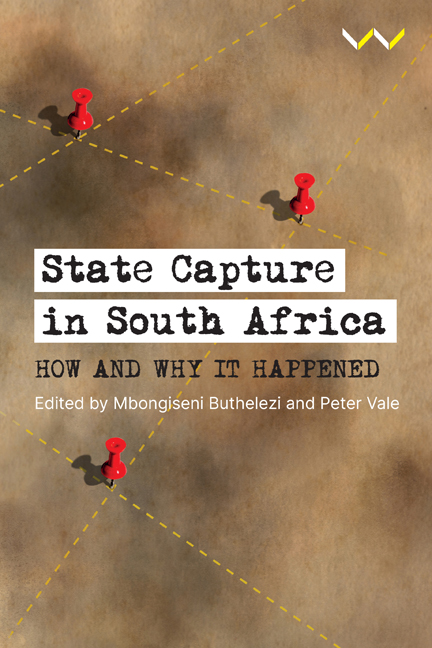Chapter 6 - Civil Society in the Face of State Capture: Solidarity and Disharmony
Published online by Cambridge University Press: 28 February 2024
Summary
The years 2016 and 2017 witnessed some of the largest anti-government protests in post-apartheid history. They were organised by civil society in response to what was increasingly called ‘state capture’. Although the term ‘state capture’ has been understood in various ways, the protests led to a growing public awareness of high-level corruption in South Africa and contributed to the ongoing effort to push back against it. If we wish to understand this fight, we must first appreciate the strategy, strengths and weaknesses from its beginnings in civil society action.
This chapter uses oral history methods, supported by documents and press reports from the period, to provide an account of civil society's changing tactical and strategic response to state capture over time. The methods have been adapted to take a sample of activists and observers across selected civil society sectors. This involved selecting participants through the prominence of their names in the records of the period or through ‘snowballing’ approaches. Together these sources suggest three, sometimes overlapping, approaches to the issue – mass communication, legal action and popular mobilisation. While several of the instances of what has come to be known as state capture are described in some detail, this is intended to highlight the strategies and mobilisation of civil society groups rather than to form a history of the state capture phenomenon.
Positioned outside of the state and business, civil society organisations seek to represent and advance the interests of the broader populace. That said, I have excluded traditionally important civil society actors such as newspapers and labour unions from the analysis because the former, at least partially, operate with a profit incentive. At the same time, the latter often partnered with the government or the Tripartite Alliance. Thus, they are different from the groups I deal with – non-governmental organisations (NGOs), non-profit organisations and communitybased organisations. While I excluded commercial newspapers, I have included donor-funded investigative journalism NGOs in the survey, as their incentives tend to lie outside those of the corporate media landscapes that they engage with.
- Type
- Chapter
- Information
- State Capture in South AfricaHow and Why It Happened, pp. 130 - 150Publisher: Wits University PressPrint publication year: 2023



